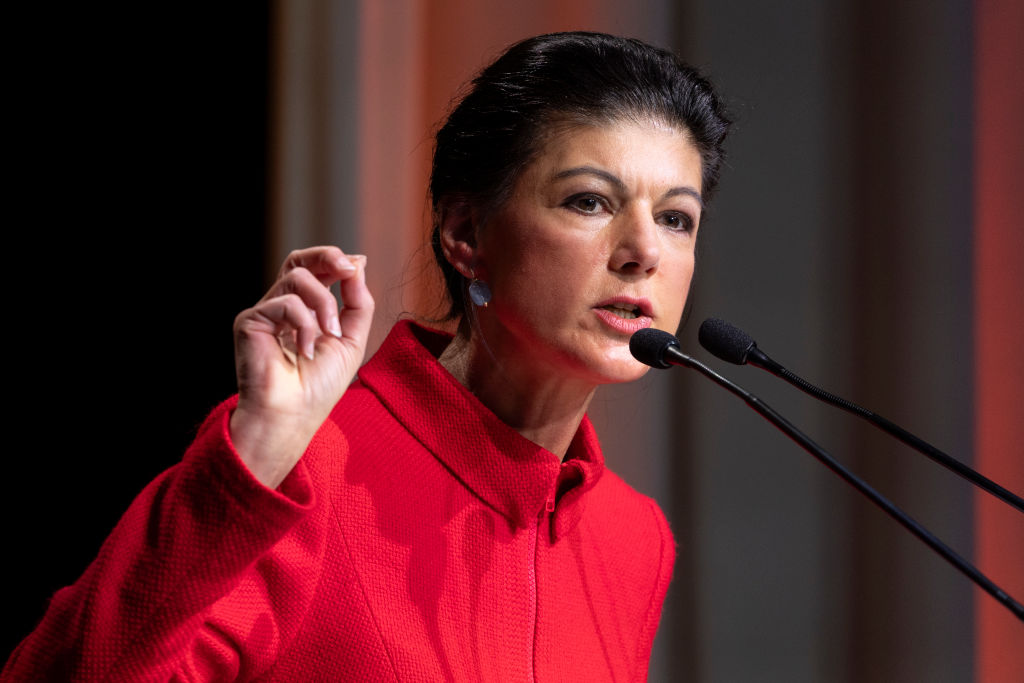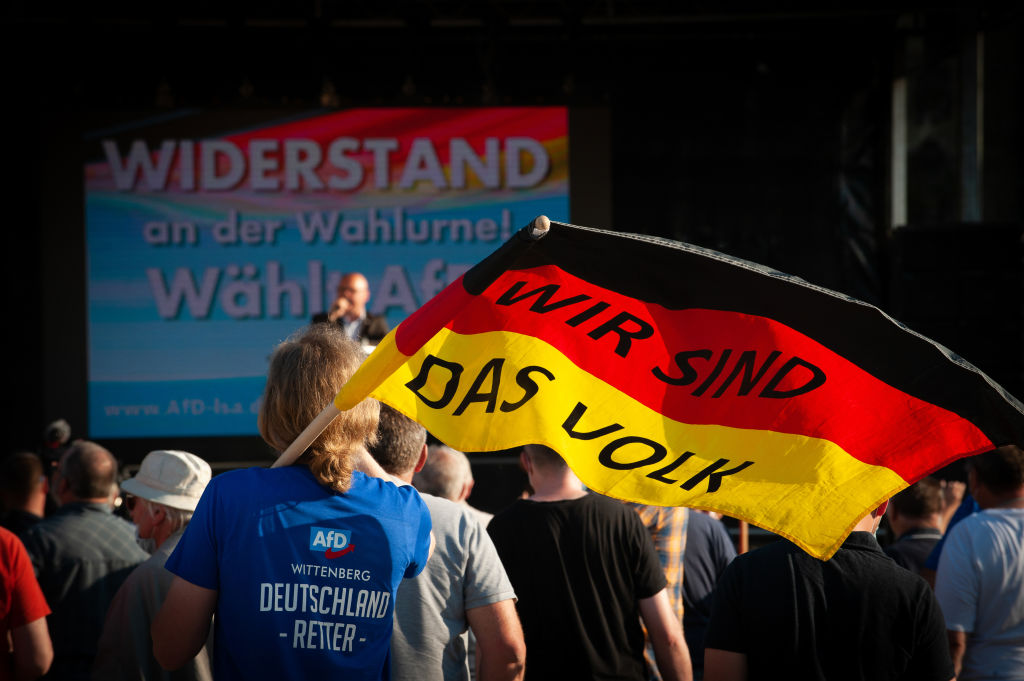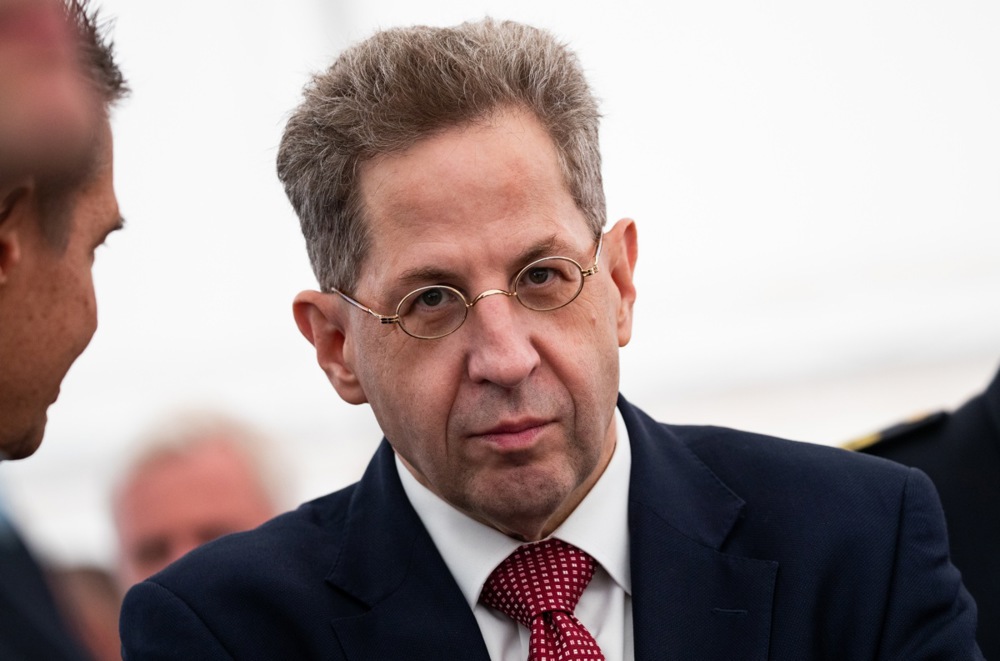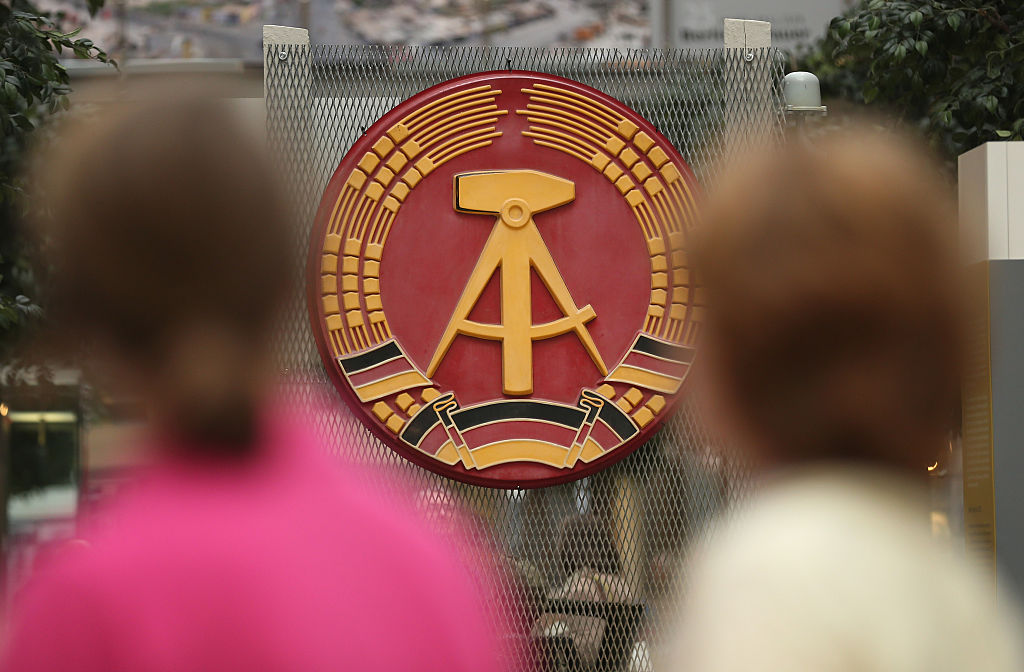Germany’s mainstream parties are polling badly. As of writing, the ruling traffic light coalition is sitting at just 33 per cent in federal election polling, 20 points lower than they were when put into power by the electorate in 2020.
Things appear to be going better for the Christian Democrats. The centre-right outfit currently boasts over 30 per cent support at the federal level, which is relatively high compared to the last four years, which saw support for Angela Merkel’s former group dip as low as 20 per cent.
But this figure does not tell the entire story. Back in just 2017, the now-ruling Social Democratic Party (SPD) together with the Christian Democrats held the support of 54 per cent of the German electorate. After the 2013 elections, they held 68 per cent.
Today, they collectively poll at just 46 per cent.
What’s gone wrong?
Casualty of War:

Looking at the polling since the last federal election in 2021, a picture emerges of a political landscape that remained relatively stable for just under one year after the September vote.
Such stability appears to collapse in April of the following year. Two months after Russia began its invasion of the Ukrainian mainland, things had started to go wrong for the ruling coalition.
Having previously pushed to stay out of the conflict, Chancellor Olaf Scholz’s government was forced to U-turn on its position of not sending heavy weapons to Kyiv. On April 26, then-defence minister Christine Lambrecht said the country would start shipping its Gepard anti-aircraft vehicles east.
The decision — spearheaded by junior coalition partners the Greens and Free Democratic Party — did not appear to be taken well by the SPD’s base. While it is unclear whether this is due to the party’s voter base disagreeing with Scholz’s decision, or seemingly being unhappy with the flip-flopping, it was at this point the group started haemorrhaging support.

Starting off April at around 26 per cent polling according to INSA, the group would finish it two points down. By December, they sat at just over 20 per cent. The party now stands at just over 15 per cent, with Scholz’s officials having been unable to gather more than 21 per cent in support since the start of 2023.
The war hit more than just the SPD. With the damage initially being felt only by the centre-left group, it quickly spread to the other coalition parties.
Problems with a spike in German energy prices quickly damaged the reputation of the country’s pro-war and anti-fossil fuel Green party. While the group initially saw a spike in support following Russia’s invasion — its hawkish stance on Russia being received well by a substantial section of the electorate — its polling began to tumble in late August as the days grew shorter and colder.
Starting August with 22 per cent support, the party’s backing fell to just 18 per cent by October 1. This decline accelerated again in 2023, with the group now sporting the support of just 12 per cent of the electorate.
Populism surges:

Germany’s poor handling of the conflict has opened up a lot more space for parties on the political fringes.
The main beneficiary of the war, politically speaking, has been the hard-right Alternative for Germany. After spending the COVID pandemic in the political wilderness, Putin’s invasion of Ukraine saw the group spring back into life in 2022 as problems in Germany mounted.
Taking a more ambiguous stance on the war, the party initially saw its polling dip, falling below 10 per cent multiple times throughout the summer.
Fortunes changed in the latter half of the year, with growing fears of energy shortages seeing support climb to 15 per cent by the end of December.
Things accelerated from there. Further economic strife in the country caused by high energy prices and the aftermath of the COVID pandemic, combined with fears regarding the war and mass immigration, saw AfD’s polling climb to an all-time high of 23 per cent by December 2023.
Since then, the AfD has suffered a political market correction. Sparked initially by contested accusations of racism surrounding an event in Potsdam, the party has seen its support drop by 5 points, with the decline being attributed to several political scandals combined with the launch of a rival left-wing group.
Even then, the group still remains the second most popular party in Germany, holding 17 per cent of the vote.
Red Return:

One of the reasons behind the AfD’s recent downturns is the founding of the Sahra Wagenknecht Alliance (BSW). Headed up by the eponymous Sahra Wagenknecht, the party has eaten into AfD’s voter share by promising left-wing economic values combined with more right-wing positions on migration and trans issues.
The AfD is not the group’s main political victim, however. While the BSW has leeched some support from the Right, it has annihilated alternatives on the Left.
Tracing its political heritage back to the now-defunct communist state of East Germany, the party has proven popular with economic left-wingers who have begun to feel alienated by the more liberal-minded elements within many of the country’s political parties.
Wagenknecht’s political alma mater, Die Linke, has suffered the most since the founding of the new group. Having previously held 5 per cent of the vote following the 2021 election, the progressive and hard-left group has seen its support dwindle to just 3.5 per cent.
Crucially, this figure is below the threshold for representation in the Bundestag, with defections from Die Linke to BSW having already forced it to disband its federal parliamentary faction.
The BSW now regularly bounces between 7 and 8 per cent in the polls, with the group set to steal numerous seats from Die Linke in the coming EU elections.
What now?

Combined, the BSW and AfD boast around 26 per cent support, a figure seven points behind support for the ruling government and four points behind the Christian Democrats.
This dash to the hard-left and hard-right looks set to have a significant impact on the European Elections. Even if the AfD underperforms its polling — something that is likely due to the nature of EU elections in Germany — the party looks set to return with more members in July.
This, in turn, will strengthen the Identity and Democracy group, a result that will have less of an impact on the AfD itself and more of an impact on other group members: Marine Le Pen’s Rassemblement National and the Flemish Nationalist Vlaams Belang. With both parties surging in France and Belgium respectively, the success of their German comrades would give them an even stronger hand at the European level.
A greater impact will likely be felt on the Left. It appears almost certain that the BSW will obliterate Die Linke’s holdings in Europe, a result that would, in turn, greatly destabilise The Left group within the European Parliament. Wagenknecht will likely end up being the person who decides whether the group lives or dies, having previously hinted that she may start her own parliamentary faction which would strip The Left of its ability to gather the necessary members needed to operate with EU approval.
The greatest impact of this shift will likely not come in June however. Instead, the main battleground will likely be the three state elections set to take place in September.
While both the BSW and AfD are still polling below the mainstream at the federal level, both groups are far stronger in the country’s east.
The former territory of the German Democratic Republic (GDR) has become a stronghold for the AfD in particular, which is — according to polling — collectively the strongest force across the formerly communist territories.
With the BSW also set to poll well in all three states set to hold votes — Brandenburg, Saxony and Thuringia — it is currently unclear whether mainstream groups will be able to govern these states without the AfD following these elections, a serious issue considering almost every one of the country’s parties have vowed never to work with the populist outfit.
Even if rainbow coalitions can be built to keep the AfD out, some fear that the radical differences between parties in the region would make any such governments ineffective, something that would likely only boost AfD polling in the long run.
?️ "You can't stand there and tell these people that they're disgusting and then expect them to vote for you!"
Historian @hoyer_kat warns Germany's mainstream parties that their demonisation of AfD voters will backfire.
Catch the full video at https://t.co/HNVo5yeFPE pic.twitter.com/HHJMRnfRdt
— Brussels Signal (@brusselssignal) February 13, 2024





